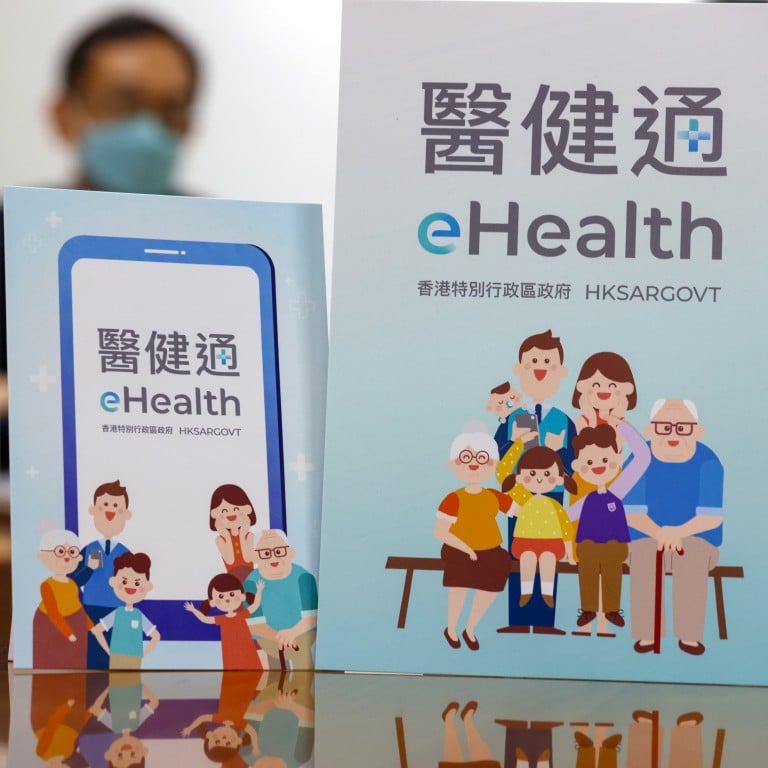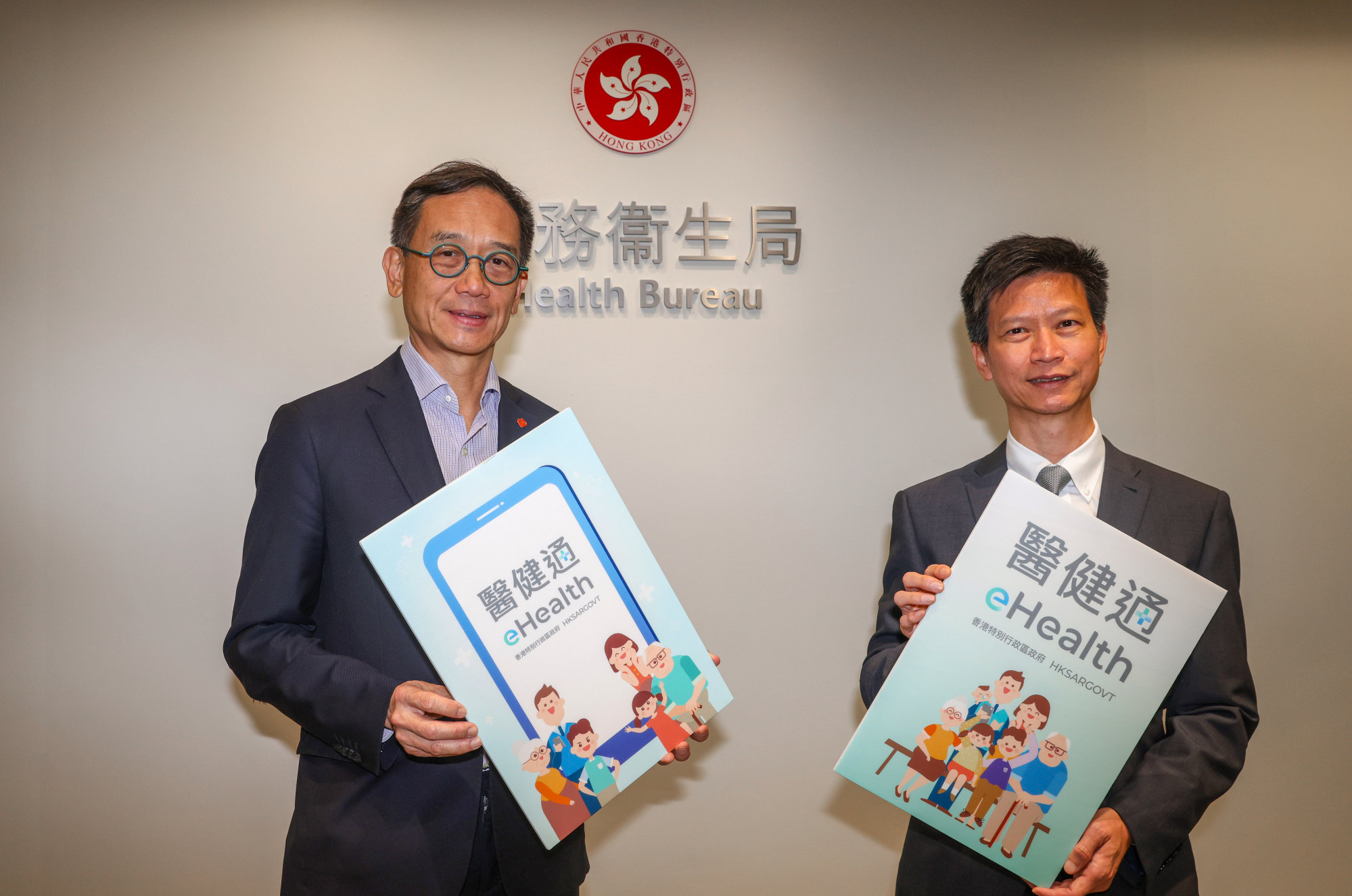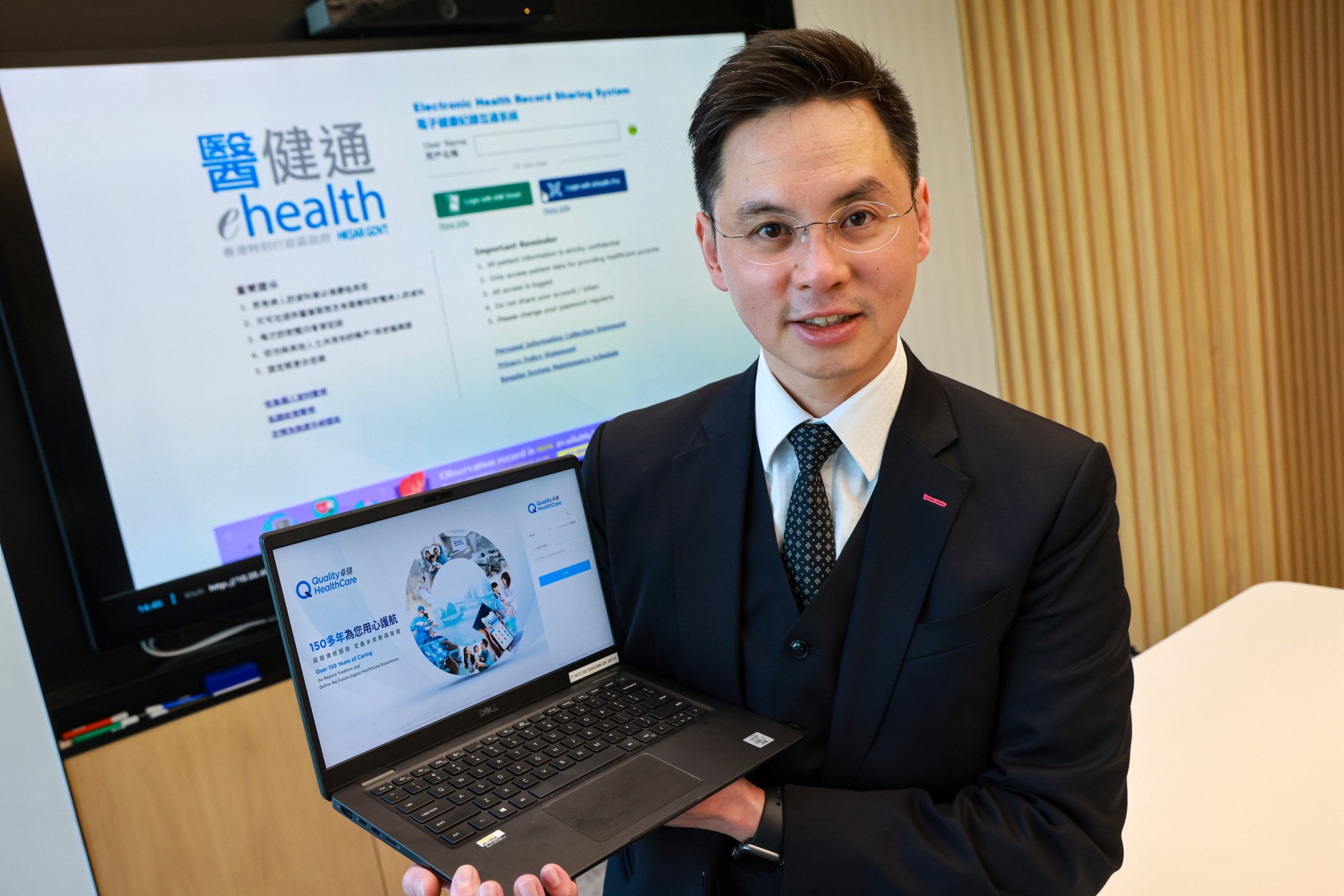
Hong Kong’s eHealth system aims to connect with half of private medical providers within the year
- Deputy health secretary Sam Hui says private sector accounts for more than 60 per cent of record views, but only contributes less than 1 per cent of data uploaded
- Authorities working with private medical sector and third-party clinical management system suppliers to synchronise sharing of patient data
Deputy Secretary for Health Sam Hui Chark-shum said authorities hoped the move could help to combat the limited number of patient records from private healthcare providers being shared to the “eHealth” system.
Government figures earlier showed that private health practitioners accounted for more than 60 per cent of record views, despite contributing data at an “extremely low” rate of below 1 per cent.
“Healthcare providers may not see the need to upload the patient data, or they may have seen it and agree with our policy directions, but they have yet to have the correct tool for uploading,” he told the Post.
Hong Kong rolled out the eHealth platform in March of 2016, which allows public and private healthcare providers to view and share patients’ electronic records, with the latter’s permission.
But private healthcare providers currently have few options in terms of clinical management systems (CMS) that allow them to simultaneously upload data to their own systems and the government’s.
The pilot scheme is a part of the five-year plan to upgrade eHealth to “eHealth+” at a cost of nearly HK$1.4 billion (US$179 million), with the aim of strengthening digitalisation, as well as supporting primary healthcare policies, innovation and cross-border services.
The Health Bureau worked with major private group Quality Healthcare Medical Services and some third-party CMS suppliers under the initiative rolled out in the second half of last year.
“Our pilot scheme is to borrow the experience of a private healthcare group that has a certain scale in the market to help us find the most convenient way to connect eHealth seamlessly and easily to the providers,” Hui said.
The deputy minister said most healthcare companies used data-storing platforms from third-party service suppliers, with the one used by Quality Healthcare Medical Services covering about half of all the city’s private providers.

Syncing the platforms would mean most of the private sector could more easily upload data to their own platforms and eHealth at the same time without extra workload this year, with other system suppliers then expected to follow suit and come up with products that were connected to eHealth in the future, he said.
Hui stopped short of confirming a time frame for the latter initiative.
The bay area refers to Beijing’s plan to integrate Hong Kong, Macau and nine mainland Chinese cities into an economic powerhouse.
Hongkongers may be able to give digital advance directives under official proposal
Dr Cheung Ngai-tseung, the Hospital Authority’s head of information technology and health informatics, who runs the pilot scheme, said it sought to lower the technicality threshold for the existing system and open it up to third parties.
The programme would also create a self-service developer portal so CMS suppliers could learn how to synchronise platforms, he said.
Dr Chow Yat, executive medical director of Quality Healthcare Medical Services, said the company had started uploading consenting patients’ information to the eHealth platform since last September.
The uploaded data included which clinics patients had visited, their medication prescriptions, vaccination records and any drug allergies, he added.
Chow said about 10 per cent of the patients visiting the group’s clinics had consented to having their medical records shared with the eHealth system.
Preparations took about four months before uploading, he said, citing the need to understand the government’s standards for data quality and security, as well as ensuring it was in a recognisable format.

The company was also looking to upload data from laboratory tests, as well as X-ray images and computed tomography scans, as part of the development for eHealth+.
Chow said authorities needed to learn how the private sector collected and managed data, such as using separate systems for logging appointments and keeping clinical records.
Dr Pierre Chan, co-chairman of the Medical Association’s information technology committee, said such moves could encourage some private doctors to upload data to the eHealth system.
But he said some doctors or patients might not see the need to upload their medical data to a shared system.
“What are the incentives for doctors to do extra work and upload medical data to a cloud-sharing system?” he said, adding that doctors already got the clinical information they needed during communications with patients.
Chan said some patients also had concerns about sharing sensitive medical data, such as records of sexually transmitted diseases, with other parties.
Hong Kong health record plan in line for revamp to boost private sector data sharing
Government figures showed 6 million residents had registered with the eHealth platform, but more than 70 per cent of them had not consented to any private healthcare providers sharing their data.
Hui said some people might not fully understand the “complicated two-step consent model”, where users had to give consent again after signing up before private healthcare providers could upload and view their records.
The Health Bureau aimed to amend the law by the end of this year or the start of 2025 so that when users signed up for eHealth, their consent to upload their data from the private sector would be given at the same time, he said.
Authorities have proposed nine new functions as part of eHealth+ to incentivise the public to sign up, including adding the ability to retrieve health records while seeking medical services on the mainland via its mobile app.
Hui said the latter was expected to be rolled out sometime this year.


